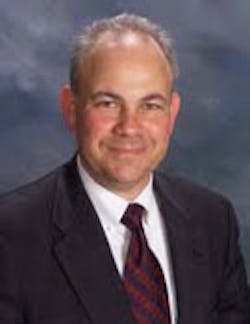As the chief executive officer for Cedar Rapids, one of my most important duties is to ensure that the citizens of the community have a responsive, well-equipped and well-trained fire department. Public safety is paramount to a community’s success—as well as a fire department’s success—when faced with an emergency or disaster. If a fire department fails to provide proper public safety, its errors or shortcomings may define the jurisdiction and its leadership. With that heavily weighted responsibility, a city executive must be able to rely on a competent, professional chief fire officer.
The Cedar Rapids Fire Department (CRFD) was founded in 1869, and in its nearly 150-year history, there have been only 13 fire chiefs. The department has long felt that the selection of a department leader is a critical task that requires precision, transparency and multiple levels of input from within the fire service, as well as from city directors, other emergency jurisdictions and the community.
Leadership in an evolving industry
The role of firefighters is constantly evolving: from fire suppression, to emergency medical services, to hazmat and special operations, and now, to all-hazards emergency response, whether natural or human-caused. Likewise, fire engineering; fire and life safety education; and promoting economic incentives for citizens and businesses to install and maintain fire protection systems are all essential components of today’s fire service. Therefore, we must seek and maintain chief fire officers who can demonstrate competence, professionalism and adaptability. Additionally, a fire service leader must not only have a vision for their department, but they must also be able to implement a multi-year plan for addressing a concourse of potential emergency response issues.
A new kind of hazard mitigation
Just as the best player in a particular sport doesn’t necessarily translate to being an effective and successful coach or manager, the best firefighter on the department may not make an effective officer. Therefore we must continue to encourage the professional development of firefighters who strive to be our future fire service leaders. There is intricate value in learning to work as a team when responding to crises, and these attributes serve the fire service leader well. But being an effective leader also requires a skill set that is not necessarily matured through being responsible for a single fire crew or a battalion. To be successful, the fire service leader must navigate through legal mandates, planning, budgeting, finance, and other media and political considerations. These areas can be thought of as new types of “hazard mitigation” that a budding chief fire officer may not be prepared to handle.
The CFO commitment
One of the most demonstrative means of showing commitment to executive leadership is the attainment of the CFO designation and accreditation of the fire department. The process is intense, and the individual who wants to earn this designation must evaluate actual contemporary cases that contain adaptive problems. The CFO designation reinforces leadership effectiveness and helps the applicant discover that being a leader is about learning specific strategies and behaviors: how to lead people, how to include people and how to achieve results.
Through the application process, the CFO will learn about the jurisdiction they serve by completing a community risk analysis and mitigation plan. More importantly, they will learn more about the people in their community, the potential threats to the citizenry and how to assemble means for affecting change. Certainly, professional development is enhanced by professional contribution, and the fire service leader who is integrated in civic groups and youth organizations in the community, for example, will become a well-rounded leader due to their active involvement within their jurisdiction. In return, this participation will show the officer how their governance and policy affects the community.
CFO characteristics
Every CFO should possess distinct characteristics that are important for all employees to remember and dedicate themselves to achieving. They include:
- Being courteous and tactful, and setting an exemplary standard for subordinates.
- Possessing effective, efficient, economical and ethical use of resources.
- Being able to look beyond the department, keeping an eye on the big picture for the fire service in general, and broader solutions to problems.
In striving to achieve and/or maintain these characteristics, fire service leaders learn a moral and ethical course of action for themselves and the organizations that they lead.
Improvement through action
As a city manager, I’m dedicated to organizational improvement, but that effort takes time. We need leaders who understand their environment who review and analyze alternatives, but who ultimately act. I look for leaders who are unafraid to provide options and solutions.
Every successful fire service leader must also be dedicated to the current and future states of their city, promote diversity and create a culture in which we are dedicated to service. This means that a city director needs to be willing to take the lead, but also be part of a larger goal.
I encourage you to look at the CFO curriculum, interview those who have earned the designation and apply. The values that I’ve seen in effective leaders are instilled through the CFO program.
JEFF POMERANZ currently serves as the city manager for the City of Cedar Rapids. During his successful career, Pomeranz has served as city manager for the City of West Des Moines, IA, the City of Port Angeles, WA, and the City of Del Rio, TX. He has served as an executive board member for the Iowa League of Cities and the Iowa City Management Association; and an Adjunct Professor for the Master of Public Administration program at Drake University. He was appointed by Governor Culver to serve as the Chair of I-Jobs, a $200 million economic stimulus program targeted towards public infrastructure, designed to benefit flood-impacted Iowa communities following the devastating floods of 2008. Pomeranz received a Bachelor of Arts in Political Science from the Rochester Institute of Technology in 1980 and a Masters of Public Administration from the University of Alabama in 1982.






